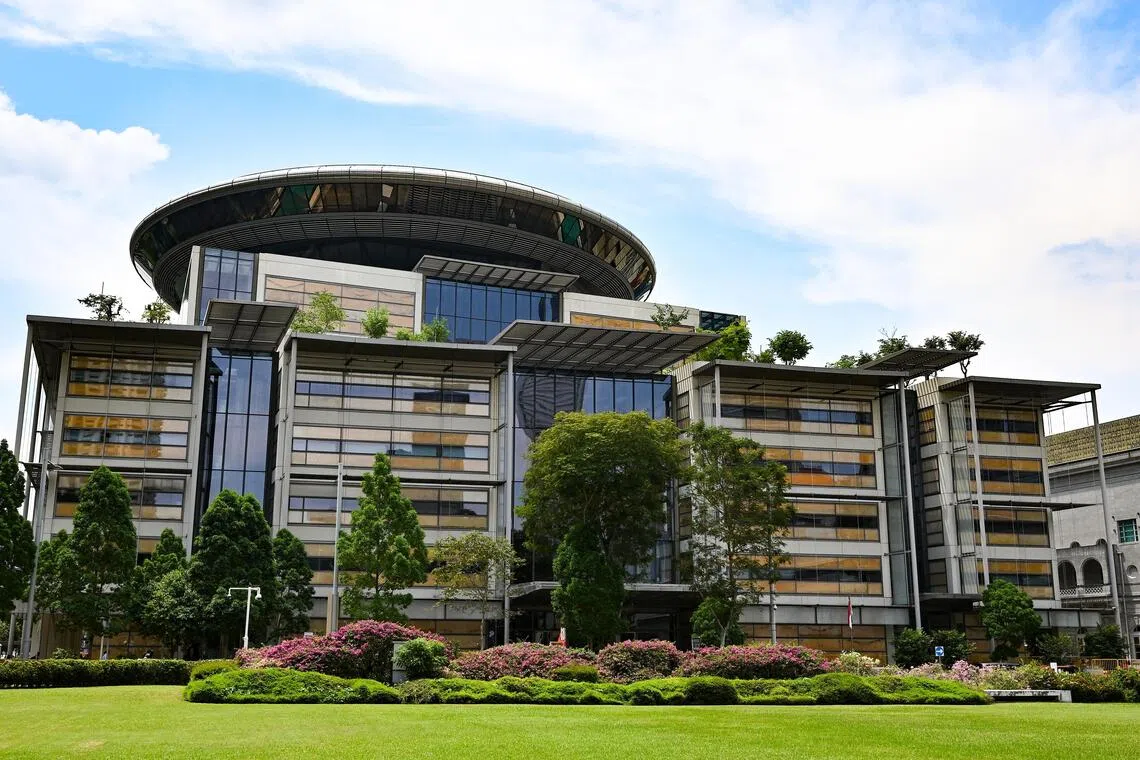SINGAPORE – A week after she was diagnosed with final-stage cancer, a woman willed her assets to her two sons and signed a statutory declaration in an effort to preserve a share of an HDB flat for them.
In the declaration, Madam Ang Geok Kheng claimed that her husband – the joint tenant of the Jurong East flat – abandoned the family in 2006 and did not contribute to repaying the housing loan.
She stated that she made monthly cash payments for the loan until it was fully repaid in 2013. She also believed her rightful share of the flat was at least 80 per cent.
Madam Ang died three days after signing the documents.
A year later, her younger son, Mr Koh You Quan, who was appointed the executor of her will, asked the High Court for a declaration that his father’s share of the flat was held in trust for Madam Ang’s estate.
But his mother’s assertions were contradicted by HDB records, which showed that the monthly repayments were deducted from his father’s Central Provident Fund (CPF) account, and that the loan was fully repaid in 1998.
In a judgment on Nov 11, Judicial Commissioner Mohamed Faizal said the fact that Madam Ang had misremembered the date by 15 years puts the credibility of her assertions in some doubt.
The judge also found it troubling that the available evidence contradicted her claim that she had made the monthly payments in cash.
He declined to grant the orders sought by Mr Koh, which included an order for his father, Mr Koh Hock Meng, to sell his share of the flat to the estate at market value.
The judge said there was insufficient evidence to support the existence of a trust, let alone to determine the legal and beneficial title of the flat.
He added: “I have some sympathy for the difficult situation the son finds himself in.”
The judge noted that Mr Koh’s parents are the central figures in this case, but his mother is dead, while his father has seemingly chosen not to participate in the court proceedings.
However, he said, the court cannot simply “rubber-stamp” an application founded on a narrative that appears to be contradicted by the objective evidence.
The judge said there was a “distinct sense that the application is a stab in the dark (in) the hope that something sticks”, largely premised on the logic that because the father has chosen not to be involved, the assertions made need not be carefully scrutinised.
However, he gave Mr Koh the option of converting the application to a different type of civil action, known as an originating claim, where witnesses have to take the stand, as opposed to evidence being presented via affidavits in the current application.
The judge was of the view that cross-examination would be useful in evaluating which evidence is to be believed, and that the issue of whether Madam Ang had the mental capacity to make a will should be properly examined.
If Mr Koh does not file the necessary court papers within three months, then the current application is dismissed, said the judge.
Mr Koh’s parents married in 1977 and bought the flat in March 1983 for $30,900.
The original agreement with HDB showed that they paid a deposit of $13,476.
The remaining balance and other fees, amounting to $18,400, were financed by a loan from HDB.
The repayments worked out to 180 monthly payments of $160.50 with effect from April 1983.
On Jan 2, 2024, Madam Ang was diagnosed with stage four cancer and told she had a few months left to live.
A week later on Jan 9, she signed a statutory declaration in which she highlighted her husband’s alleged vices and claimed that he neglected the family.
She said there was not enough time for her to divorce him or apply to the court for a determination of her share of the flat. So she had decided to sever the joint tenancy into a tenancy-in-common in equal shares, so that a share can be preserved and given to her two sons.
Under a tenancy-in-common, when one owner dies, his share is passed on to his beneficiaries, instead of being passed to the surviving owner as in a joint tenancy.
Madam Ang wanted her sons to apply to the court after her death for a determination of her rightful share, which she believed was at least 80 per cent as she had made most of the financial contributions.
She also made a will for her assets to be divided equally between her sons. She died on Jan 12 that year.
Mr Koh filed the application on Jan 23, 2025. The papers were personally served on his father on Feb 3.
Despite being notified multiple times, the father did not attend any of the hearings and did not file any documents.
At the first hearing on March 26, the judge asked Mr Koh’s lawyer, Mr Patrick Tan, about “glaring deficiencies” in the affidavit filed by Mr Koh.
These included whether the severance of the joint tenancy was properly effected and whether Madam Ang had the necessary capacity to make a will.
Mr Koh filed a second affidavit, while Mr Tan wrote to HDB and the CPF Board for information regarding the financial contributions for the flat.
Affidavits were also filed by a lawyer and a doctor regarding Madam Ang’s mental state at the time.

